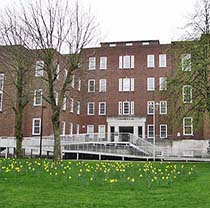Psychological understanding and treatment of psychosis
Our research focuses on psychological, social and environmental models to understand psychosis and related problems which lead to the development of new treatments or other relevant interventions for people with psychosis and their carers across the lifespan.
Key aims are:
- To increase the understanding of the cognitive processes underpinning psychosis and understanding of the factors which lead to increased recovery and improvement in key symptoms.
- To develop and evaluate new treatments by execution of randomised controlled trials which contribute directly to the evidence base supporting the use of psychological treatments of psychosis in practice and which can contribute directly to the development of good practice guidelines, such as those produced by the National Institute of Clinical Effectiveness (NICE).
- To produce evidenced based outcome measures and treatment manuals for use in healthcare. The group has published over 20 books which are used as clinical handbooks for mental health practitioners and contributed numerous book chapters describing the clinical interventions developed. Methods developed by the group have been implemented in the UK and multiple countries throughout UK, Europe, USA, Asia, Australia and Africa.
The research spans the spectrum of psychosis, from those at risk of psychosis, recent onset and those with longstanding and chronic problems. The group focuses on a wide range of problems such as
- bi-polar disorder,
- schizophrenia,
- first episode psychosis.
We also focus on research for people with co-morbid problems such as substance misuse, learning disability, suicidality and physical health problems. The work is multi-dimensional and focuses on the experiences and needs of individuals with psychosis and also on the experiences and needs of carers, relatives and service providers.
Our research programme is embedded within a close collaboration with the NHS and other partners, primarily as part of the Manchester Academic Health Sciences Centre. We are committed to the involvement of service users in our research and this has resulted in research which is world leading, relevant and implementable within services.

